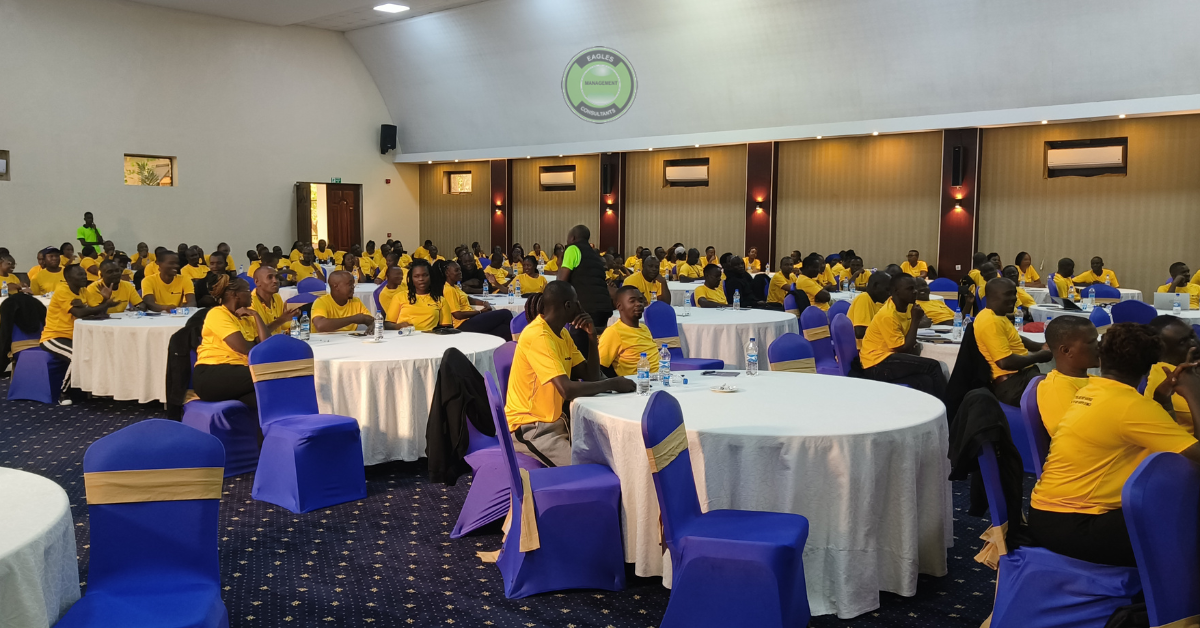Workplace Stress in Kenya affects thousands of employees across different sectors. Many people struggle to balance long hours, rising costs, and pressure to perform. These issues continue to grow each year. As a result, businesses are searching for effective ways to support their teams. Companies like www.eaglesconsultants.com help workplaces build healthier and more productive environments.
Understanding Workplace Stress in Kenya.
Workplace stress happens when work demands exceed a person’s ability to cope. Many Kenyan workers face tight deadlines, heavy workloads, or unclear expectations. These issues create tension and reduce focus. Stress affects job performance and personal wellbeing. When stress is not managed, it leads to burnout and poor mental health.
Major Causes of Workplace Stress in Kenya.
1. Heavy Workloads.
Many employees handle multiple tasks with limited time. This situation builds pressure. Teams feel overwhelmed when deadlines are unrealistic.
2. Low Pay and Rising Costs.
The cost of living in Kenya has increased. Low pay makes it hard to meet basic needs. Financial stress adds more pressure at work.
3. Poor Management and Communication.
Employees feel stressed when leaders fail to communicate clearly. Lack of guidance creates confusion. Poor leadership lowers team morale.
4. Long Working Hours.
Many workers spend long hours at the office. Long shifts reduce rest time. This leads to fatigue and reduced productivity.
5. Job Insecurity.
Employees worry about layoffs and unstable contracts. This fear creates anxiety. The lack of stable jobs increases stress levels.
Effects of Workplace Stress on Employees.
Stress affects both mental and physical health. Employees may lose focus or feel constantly tired. Many struggle to meet goals or find motivation. Stress also leads to headaches, sleep problems, and low energy.
Workplaces also suffer. High stress causes low productivity. It increases mistakes and absenteeism. Companies lose time and revenue when staff are overwhelmed.
How to Prevent Workplace Stress in Kenya.
1. Improve Work Organization.
Clear roles help employees know what to do. Good planning reduces panic. Teamwork also becomes stronger.
2. Provide Regular Training.
Training boosts confidence. Employees learn new skills. This helps them handle tasks more easily.
3. Encourage Open Communication.
Leaders should listen to their teams. Open talks reduce tension. Staff feel valued when their concerns matter.
4. Offer Flexible Work Options.
Remote work or flexible hours reduce pressure. Employees get more control over their schedule. This allows better work–life balance.
5. Promote Mental Health Support.
Businesses should offer wellness programs. Platforms like www.eaglesconsultants.com provide team support, coaching, and stress management sessions.
Healthy Coping Strategies for Employees.
1. Take Breaks During Work.
Short breaks help the mind relax. A calm mind stays productive.
2. Practice Deep Breathing.
Breathing exercises reduce stress fast. They lower anxiety and improve focus.
3. Stay Physically Active.
Regular exercise boosts mood. It also helps the body manage stress better.
4. Build Strong Support Systems.
Talking to friends or colleagues eases tension. Sharing problems helps reduce pressure.
5. Set Clear Priorities.
Create daily goals. Work becomes easier when tasks are organized.
Why Stress Management Matters for Kenyan Workplaces.
Healthy employees create a strong company. They perform better, stay focused, and work with energy. Businesses that reduce workplace stress see higher productivity. They also enjoy lower staff turnover. A supportive workplace attracts skilled talent.
Organizations in Kenya benefit from expert guidance. Professional consultants offer stress management training and wellness solutions. Visit www.eaglesconsultants.com for workplace programs that help teams stay motivated and healthy.
Finally, workplace Stress in Kenya is a growing issue, but it can be managed. Companies must act early to support their staff. Employees need simple coping strategies to stay productive and healthy. When both parties make an effort, stress levels drop. This creates a stronger and more positive workplace for everyone.



